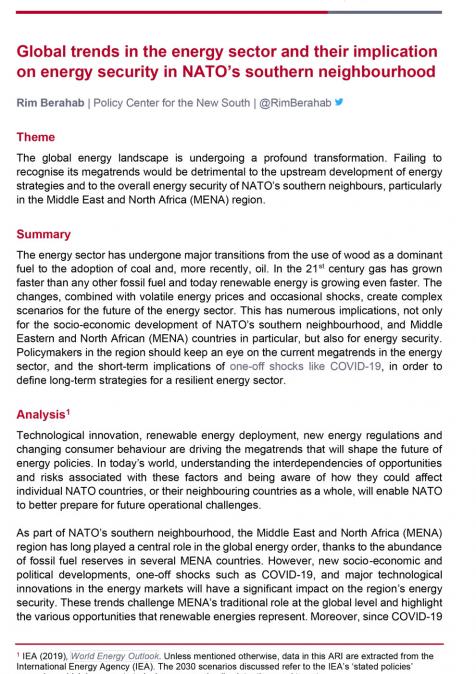Podcasts
Renewable Energy And Water And Food Security
26
July
2017
Related topics:
This podcast is performed by Dr. Rabi Mohtar. Renewable energy technologies are projected to have substantial growth in the coming decades, especially given the environmental, social and economic drivers observed globally. The Middle East and North Africa (MENA) region encloses abundant alternative energy sources such as solar, wind and hydropower. The concern is more whether the Arab region will be able to respond to and manage the growth opportunities in this emerging sector.







